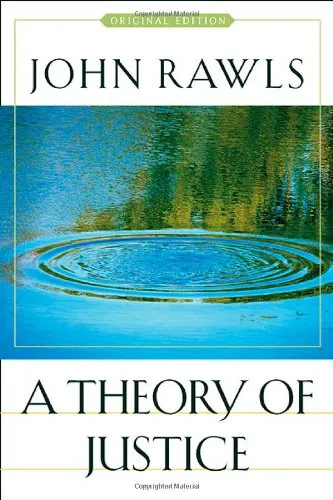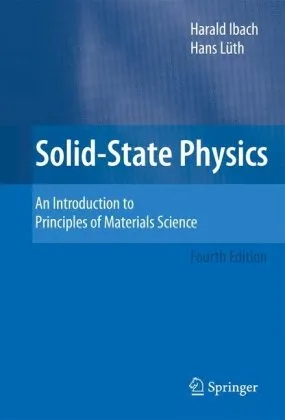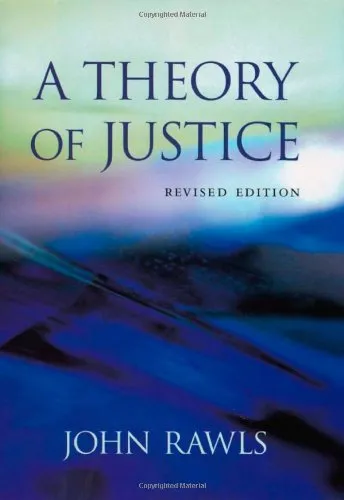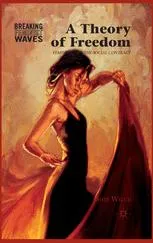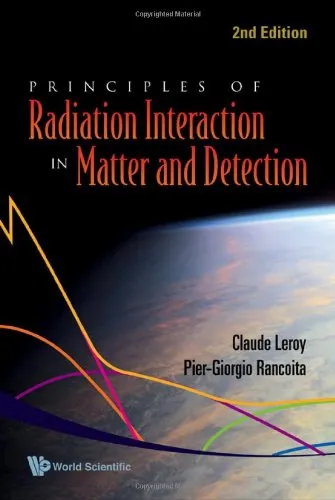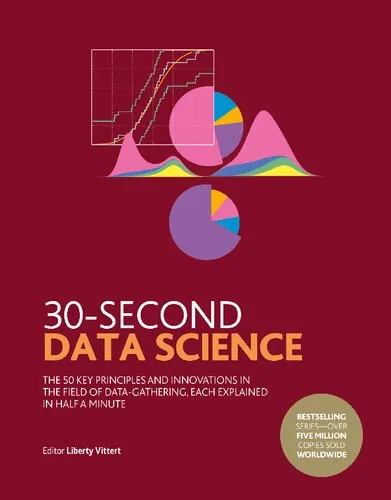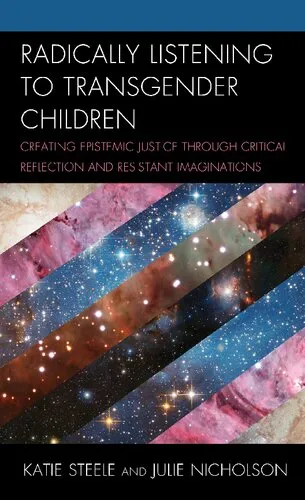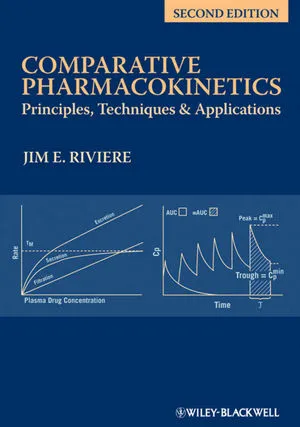A Theory of Justice: Original Edition
4.5
بر اساس نظر کاربران

شما میتونید سوالاتتون در باره کتاب رو از هوش مصنوعیش بعد از ورود بپرسید
هر دانلود یا پرسش از هوش مصنوعی 2 امتیاز لازم دارد، برای بدست آوردن امتیاز رایگان، به صفحه ی راهنمای امتیازات سر بزنید و یک سری کار ارزشمند انجام بدینکتاب های مرتبط:
معرفی کتاب 'نظریهای در باب عدالت'
کتاب 'A Theory of Justice: Original Edition' یکی از آثار برجسته در فلسفه سیاسی و اخلاقی است که توسط جان رالز نوشته شده است. این کتاب در سال ۱۹۷۱ منتشر شد و به سرعت به یکی از مهمترین منابع در مطالعات عدالت تبدیل شد.
خلاصهای از کتاب
در این کتاب، رالز به بیان نظریهای جامع در باب عدالت میپردازد که به عنوان «عدالت به مثابه انصاف» شناخته میشود. او اعتقاد دارد که اصول عدالت باید در وضعیتی فرضی به نام "original position" انتخاب شوند، وضعیتی که افراد در آن پشت یک "veil of ignorance" قرار میگیرند و از وضعیت اجتماعی، توانمندیها و اهداف شخصی خود بیاطلاع هستند. این رویکرد به افراد اجازه میدهد تا به اصولی عادلانه برای توزیع حقوق و مزایا در جامعه دست یابند.
نکات کلیدی
- مفهوم "original position" و "veil of ignorance" به عنوان ابزارهایی برای تضمین انصاف در تصمیمگیریهای اخلاقی و سیاسی.
- اصول دوگانه عدالت: اصل برابری در اساسیترین آزادیهای فردی و اصل تمایز که تصریح میکند نابرابریها باید تا جایی پذیرفته شوند که به نفع کمتر برخوردارترین افراد جامعه باشند.
- تاکید بر ساختارهای نهادی به منظور تضمین اجرای اصول عدالت.
جملات مشهور از کتاب
"عدالت اولین فضیلت نهادهای اجتماعی است، همان گونه که حقیقت اولین فضیلت نظامهای فکری است."
"ساختارهای اجتماعی باید طوری طراحی شوند که بیشترین مزایا را برای کمترین معاشران جامعه فراهم آورند."
چرا این کتاب اهمیت دارد؟
کتاب 'A Theory of Justice' به دلایل متعددی اهمیت خود را حفظ کرده است. این اثر نه تنها به عنوان یک منبع کلیدی در فلسفه سیاسی محسوب میشود بلکه بنیاد بسیاری از مباحث معاصر در زمینه حقوق بشر، عدالت اجتماعی و سیاستهای عمومی را تشکیل میدهد. رالز نه تنها بحثی نظری و انتقادی از آرای فیلسوفان پیشین مانند بنتام و میل ارائه میدهد، بلکه چارچوبی نوین و کاربردی برای تحلیل عدالت در جوامع مدرن پیشنهاد میکند. به علاوه، اصول پیشنهادی او همچنان بر طراحی سیاستهای عدالت اجتماعی و اقتصادی تاثیرگذار هستند و به دلیل ایجاد بستری برای گفتگوی بینالمللی در خوانشهای عدالت و اخلاق قدرتمند تلقی میشوند.
A Theory of Justice: Original Edition
A profound reflection on justice, 'A Theory of Justice: Original Edition' is a pioneering work that reshaped political philosophy. Developed by John Rawls, this seminal text introduced a comprehensive and systematic alternative to utilitarianism, drawing from the social contract tradition. With its rigorous analysis and innovative ideas, the book has stimulated significant debate and discussion, positioning itself as a cornerstone of modern political and ethical theory.
Detailed Summary of the Book
The book presents an elaborate theory of "justice as fairness," aiming to articulate an ideal method for structuring a just society. Rawls constructs a hypothetical scenario he terms the "original position," where free and rational individuals operate behind a "veil of ignorance." This veil obscures all knowledge of personal characteristics and social standing, ensuring decisions are made impartially and fairly.
Rawls contends that from this original position, two fundamental principles of justice would emerge. The first principle ensures equal basic liberties for all individuals, taking precedence over all other social values. The second principle, known as the "difference principle," stipulates that social and economic inequalities are permissible only if they are arranged to benefit the least advantaged members of society and are attached to positions open to all under conditions of fair equality of opportunity.
Rawls meticulously contrasts his principles with classical utilitarianism and other historical theories of justice, illustrating why "justice as fairness" more intuitively aligns with our ethical intuitions. This intellectual venture defends liberty and equality, forming the bedrock of Rawls' groundbreaking work.
Key Takeaways
The key insights from Rawls' 'A Theory of Justice' are manifold:
- The Original Position: The conceptual starting point designed to ensure a fair procedure for the selection of principles of justice.
- Veil of Ignorance: A method ensuring impartiality by concealing all personal biases and societal hierarchies during decision-making.
- Two Principles of Justice: Equal basic liberties and the difference principle that favors the least advantaged.
- Critique of Utilitarianism: Rawls' assertion that utilitarianism inadequately protects individual rights and liberties.
- Institutional Framework: The emphasis on the importance of institutions that uphold justice through fair and equitable frameworks.
Famous Quotes from the Book
"Each person possesses an inviolability founded on justice that even the welfare of society as a whole cannot override."
"Justice is the first virtue of social institutions, as truth is of systems of thought."
"The principles of justice are chosen behind a veil of ignorance."
Why This Book Matters
'A Theory of Justice' has left an indelible mark on philosophical and political landscapes. It reinvigorated the social contract theory tradition, bringing it into the realm of contemporary thought and debate. Importantly, the book offers a framework for assessing the justice of societal institutions, urging political systems to uphold fairness and equity while safeguarding individual freedoms.
Rawls’ ideas have been instrumental not only in academic circles but also in practical discourse on liberty, equality, and social justice. This work compels us to rethink justice in a coherent and structured manner, posing critical questions about the moral fabric of societies. By emphasizing the role of fairness in achieving just outcomes, Rawls’ analysis remains a guiding light for those endeavoring to create more equitable social systems.
In conclusion, the enduring relevance of 'A Theory of Justice' lies in its ability to challenge entrenched paradigms and inspire efforts towards a society where justice truly prevails for all.
دانلود رایگان مستقیم
شما میتونید سوالاتتون در باره کتاب رو از هوش مصنوعیش بعد از ورود بپرسید
دسترسی به کتابها از طریق پلتفرمهای قانونی و کتابخانههای عمومی نه تنها از حقوق نویسندگان و ناشران حمایت میکند، بلکه به پایداری فرهنگ کتابخوانی نیز کمک میرساند. پیش از دانلود، لحظهای به بررسی این گزینهها فکر کنید.
این کتاب رو در پلتفرم های دیگه ببینید
WorldCat به شما کمک میکنه تا کتاب ها رو در کتابخانه های سراسر دنیا پیدا کنید
امتیازها، نظرات تخصصی و صحبت ها درباره کتاب را در Goodreads ببینید
کتابهای کمیاب یا دست دوم را در AbeBooks پیدا کنید و بخرید
1315
بازدید4.5
امتیاز0
نظر98%
رضایتنظرات:
4.5
بر اساس 0 نظر کاربران
Questions & Answers
Ask questions about this book or help others by answering
No questions yet. Be the first to ask!
